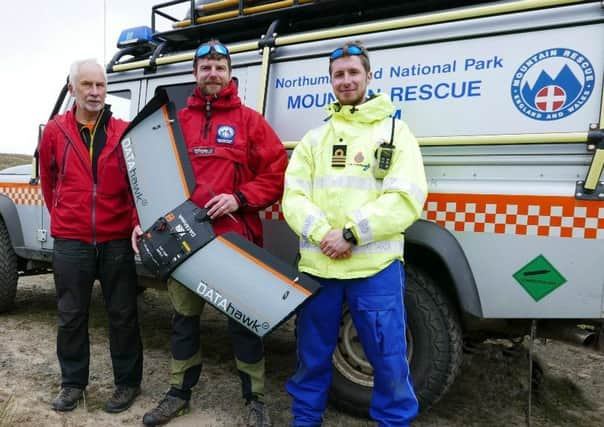Northumberland National Park provides vital platform for research


The project was carried out by the Centre for Search Research with Northumberland National Park Authority and Newcastle University at a designated site near Rothbury.
The study, titled Exercise Northumberland, saw ground and air assets working together to find randomly distributed targets over a 2km search area. Air assets including fixed and rotary wing aircrafts and unmanned aerial vehicles (drones) took part in the exercise, while trained searchers from the Northumberland National Park Mountain Rescue Team (NNPMRT) and their air-scenting dog searched on foot.
Advertisement
Hide AdAdvertisement
Hide AdIn recent years, there has been a growing interest in the use of drones in search and rescue operations, which specialists were keen to explore.
Peter Roberts, co-founder of the Centre for Search Research and long-serving member of NNPMRT, said: “The research is ground-breaking in terms of its scope and originality.”
Tony Gates, chief executive at Northumberland National Park Authority, said: “We are incredibly pleased to have been involved with this very important project which will ultimately help to keep people safe in the National Park. We hope that the results from this work will help in all search and rescue operations nationally and internationally.”
In December, an international workshop will take place organised in conjunction with Newcastle University Business School. It is hoped that an international working group will be formed to pioneer and coordinate research into the use of this emerging technology to help in the search for missing persons. The report is available on the Centre for Search Research’s website now.